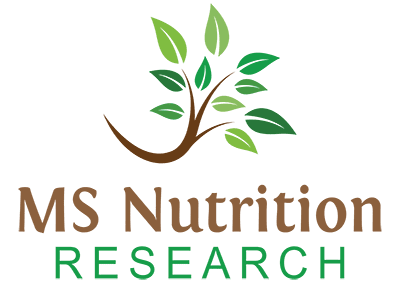Healthy eating
Healthy eating is essential for overall health and wellbeing, managing some of the symptoms of MS, and reducing the risk of other health problems. Because there is no specific diet recommended for people with MS, many eating patterns fit within a healthy diet and can suit the food preferences of people with MS.
Benefits of eating well
Eating a healthy balanced diet can help people with MS in many ways:
- Getting enough nutrients. Cutting out foods and food groups may put people with MS at risk of not getting the nutrients:
![]() Iron – low iron can cause fatigue, muscle weakness, and poor concentration
Iron – low iron can cause fatigue, muscle weakness, and poor concentration
![]() Calcium – important for bone strength, and people with MS may be more prone to having weaker bones and osteoporosis
Calcium – important for bone strength, and people with MS may be more prone to having weaker bones and osteoporosis
![]() Fibre – keeps your bowels moving regularly (reduces constipation), and fibre feeds the gut bacteria, which in turn can help the immune system
Fibre – keeps your bowels moving regularly (reduces constipation), and fibre feeds the gut bacteria, which in turn can help the immune system
![]() Vitamin B12 – plays a key role in the health of nerve cells. Not enough B12 can cause symptoms similar to some MS symptoms – fatigue, disturbed vision, and pins and needles
Vitamin B12 – plays a key role in the health of nerve cells. Not enough B12 can cause symptoms similar to some MS symptoms – fatigue, disturbed vision, and pins and needles
- Energy. Cutting out food groups or not eating enough can make fatigue worse
- Reducing some of the symptoms – foods and drinks can affect many symptoms of MS, including bladder and bowel issues, fatigue, mental health, pain, cognition, swallowing, and weight
- Reducing the risk of other health conditions, such as heart disease, type 2 diabetes, and some cancers
Healthy eating for people with MS
Healthy eating for people with MS includes:
- Lots of plant-based foods, such as vegetables, fruits, grains, and legumes/beans
- Wholegrain cereal foods (provide energy, fibre, and vitamins that could help reduce fatigue)
- Different coloured fruits and vegetables (provide nutrients that can keep your immune system healthy and reduce inflammation)
- Some lean meats and seafood (or legumes/beans, nuts, seeds, and eggs as a replacement) (provides protein, iron, and B12 from animal products)
- Some dairy products or other calcium-rich foods/drinks, e.g., oat milk, soy milk, etc (provides calcium, protein, and B12 – not all oat/soy etc milks have calcium or B12 – read the label to make sure they have been added in)
- Not too many foods and drinks with added sugars, added salt, saturated fats, and/or alcohol (junk and ultra-processed foods). These foods are often eaten as part of social events and don’t need to be cut out completely – but should be limited to sometimes and smaller amounts

People with MS can still eat a healthy diet if they prefer to eat vegetarian (no meat or seafood), vegan (no meat, seafood, dairy, or eggs), gluten-free, or dairy-free foods. But it’s important to ‘swap’ out foods for ones with similar nutrients, instead of just cutting them out. If you prefer to eat vegetarian/vegan, dairy or gluten-free, you could try these swaps:
- Swap meat for: eggs, tofu, nuts, seeds, and legumes/beans (lentils, kidney beans, chickpeas, black beans, soybeans, etc.)
- Swap dairy for: plant-based alternatives, including milks or yoghurts made from soy, oat, almond, macadamia, or rice. Check the label for at least 100 mg of calcium per 100 mL
- Swap gluten-containing grains for: rice, corn (maize), soy, potato, tapioca, sorghum, quinoa, flaxseed/linseed, chia seeds, gluten-free oats (unless diagnosed with coeliac disease), nut flours (e.g., almond flour), and gluten-free foods, such as gluten-free bread and pasta. Where possible, choose wholegrain/wholemeal options (e.g., brown rice)
Diets marketed to people with MS
Some diets marketed to people with MS cut out specific foods or entire food groups.
We have talked to people with MS about the different diets and they’ve told us that they can be socially isolating (hard to go out and have lunch with your family or friends), sometimes require expensive ingredients that aren’t available at local supermarkets, can take a lot of mental effort to stick to, and you might feel guilty if you don’t stick to it 100% of the time.
A person with MS who is thinking about following one of the diets could ask themselves these questions:
Does the diet cut out any foods or whole food groups, making it tough to get all the necessary nutrients?
Can you still enjoy your food?
Are any claims about the diet backed up by independent scientific studies?
Does the diet fit in with your lifestyle and the time and money you have to spend on it?
Currently, there isn’t strong evidence to support any of the diets marketed to people with MS. However, something that is common to all diets is that they focus on eating lots of whole foods and reducing junk/ultra-processed foods. This is important for people with MS and can be done without following a restrictive diet.
If a person with MS wants to follow a special diet, they should ensure that they are replacing the foods being cut out with similar alternatives. An Accredited Practising Dietitian can check that they are getting enough nutrients they need while following the diet.
If you live in WA, you can get in touch with MSWA dietetics team.
Reputable sources of information about diet and MS
